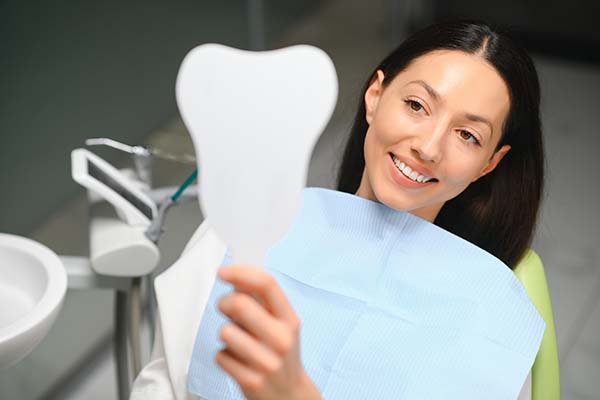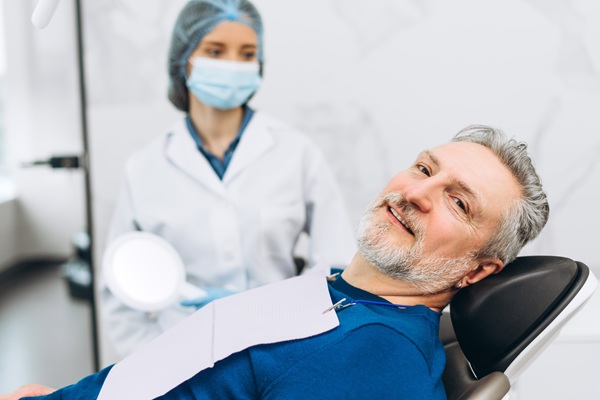Life After Dental Implants

Dental implants can improve your oral health and appearance. There are many benefits to choosing this tooth-replacement method. Of course, implants are not the only way you can restore your smile and the function of your mouth. However, as you learn more about them, you will see why so many people choose this treatment. Living with implants will require some adjustments, but you will soon get used to them and enjoy many of the things you have been missing.
The consequences of losing teeth
People who have missing teeth can struggle with their health and self-esteem. Having gaps in the mouth can be embarrassing. It may be difficult to be around other people and engage in social activities. There are also effects on the person’s overall wellness. Without teeth, it is difficult to eat many foods, so people who lose teeth often do not get proper nutrition. Also, losing one tooth can cause adjacent teeth to drift and become loose.
The advantages of dental implants over other choices
Implants are not the only way to replace teeth and repair a smile. Dentures have been a popular choice for centuries. Dental bridges are also common when the patient is missing one or a few teeth. One of the biggest benefits of having implants is that this restoration method is more durable and lasts longer. Implants are embedded deep in the jawbone, so they improve the bite force.
Dentures rest on the gums, so there can often be soreness and irritation. Implants do not cause this issue. Also, implants will not slip out while the person is eating or talking, as dentures can do. Like bridges and dentures, implants are natural-looking and can work well for one missing tooth or an entire mouth of missing teeth.
Getting used to implants
As with any type of dental restoration, it will take the patient time to get accustomed to dental implants. There will be some pain and soreness at first. The patient should take medication to soothe any discomfort. Using a cold compression pack can also reduce the swelling that the person may experience. After a few weeks, the implants should be less noticeable.
Eating with implants
For the first couple of weeks after getting dental implants, the patient should not eat anything hard, sticky, or chewy. Keeping to a diet of soft, mild foods will minimize the risk of irritating the surgical site. Once the person has fully recovered, more foods can be introduced. Still, the individual should be cautious about biting into foods that could break or pull out the crown.
Hygiene
Visiting the general dentist will still be critical for people who have dental implants. Daily brushing and flossing will lengthen the life span of the implants. Failing to keep up with these habits could cause gum disease and affect the integrity of the implants. Patients should address any concerns with the dentist immediately.
A new look with a new mouth
Dental implants are a good choice for people with missing teeth. During and after the surgery can be a challenging period. However, good health and a nice smile await. Following these tips will increase the likelihood of a successful treatment.
Request an appointment here: https://www.drpainless.com or call Red Cliffs Dental at (435) 465-4002 for an appointment in our St. George office.
Check out what others are saying about our dental services on Yelp: Dental Implants in St. George, UT.
Recent Posts
There is a lot to think about when it comes to dental implants. This tooth-replacement treatment is an effective way to revitalize your smile and restore the ability to chew. The process can take several months, and the recovery can be lengthy. As you learn more about this procedure, you can make the right decision…
Dental ridge preservation is a way to preserve the socket after a missing tooth develops. Dental implants require adequate bone support, and bone loss can occur after losing a tooth if the bone density is not preserved. This review offers insights into the purpose of dental ridge preservation as it relates to dental implants treatment. Ridge…
If a spouse or other loved one has been kept up at night because of snoring, it may be time to see if sleep apnea is a problem. While many people do not think of snoring as a medical issue, it can signify sleep apnea or a partially obstructed airway. Even a minor airway obstruction…
Understanding the key differences between a dentist and an orthodontist can help patients determine which specialist they need for their oral health care. While both professionals focus on maintaining and improving oral health, their roles, training, and areas of expertise differ significantly. A dentist typically handles general dental care, while an orthodontist specializes in diagnosing…


